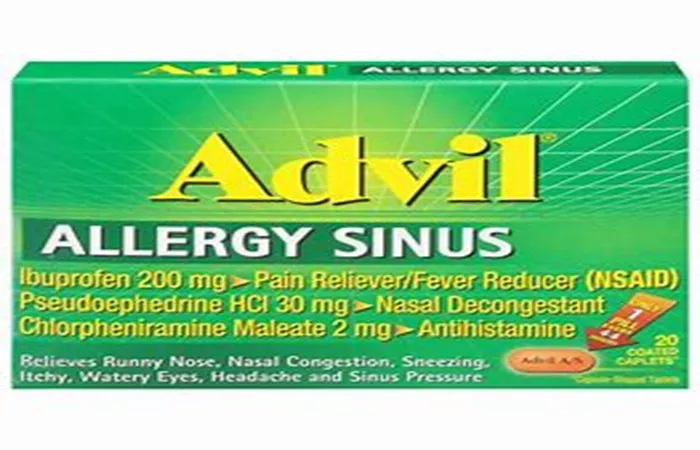Allergy-induced sinus issues can significantly impact daily life, causing symptoms such as nasal congestion, facial pain, and difficulty breathing. Effective management often involves using medications that provide relief from these symptoms. This article provides a comprehensive overview of the best medications for managing allergy-induced sinus issues, emphasizing safety and efficacy.
Understanding Allergy-Induced Sinus Issues
Allergy-induced sinus issues, often referred to as allergic rhinitis or sinusitis, occur when the immune system overreacts to allergens such as pollen, dust mites, or pet dander. This reaction leads to inflammation in the nasal passages and sinuses, causing symptoms like nasal congestion, facial pain, and difficulty breathing. Effective management involves using medications that reduce inflammation and provide relief from these symptoms.
8 Best Medications for Allergy-Induced Sinus Issues
Corticosteroid Nasal Sprays
Corticosteroid nasal sprays are highly effective in reducing inflammation and congestion caused by allergies. These medications can significantly reduce symptoms such as nasal congestion, facial pain, and difficulty breathing.
1. Flonase (Fluticasone)
Form: Nasal spray
Effectiveness: Highly effective in reducing inflammation and congestion.
Safety: Generally safe for long-term use. Side effects may include nasal irritation and nosebleeds.
Best For: Individuals with moderate to severe allergy-induced sinus issues.
2. Nasonex (Mometasone)
Form: Nasal spray
Effectiveness: Effective in managing allergy-induced sinus symptoms.
Safety: Generally safe with minimal side effects. May cause nasal irritation.
Best For: Individuals with moderate to severe allergy-induced sinus issues.
3. Rhinocort (Budesonide)
Form: Nasal spray
Effectiveness: Effective in reducing inflammation and congestion.
Safety: Generally safe for long-term use. Side effects may include nasal irritation and nosebleeds.
Best For: Individuals with moderate to severe allergy-induced sinus issues.
Antihistamine Nasal Sprays
Antihistamine nasal sprays provide rapid relief from nasal symptoms by blocking histamine receptors, reducing inflammation and itching.
4. Astepro (Azelastine)
Form: Nasal spray
Effectiveness: Provides quick relief from nasal symptoms, including congestion, sneezing, and runny nose.
Safety: Generally well-tolerated but may cause a bitter taste or nasal irritation.
Best For: Individuals who need fast-acting relief from nasal symptoms.
5. Patanase (Olopatadine)
Form: Nasal spray
Effectiveness: Effective in managing nasal symptoms for up to 24 hours.
Safety: Generally safe with minimal side effects.
Best For: Individuals who need long-lasting relief from nasal symptoms.
Decongestant Nasal Sprays
Decongestants provide rapid relief from nasal congestion by reducing swelling in the nasal passages. However, they should not be used for more than three days to avoid rebound congestion.
6. Afrin (Oxymetazoline)
Form: Nasal spray
Effectiveness: Provides quick relief from nasal congestion.
Safety: Should not be used for more than 2-3 days to avoid rebound congestion.
Best For: Short-term relief from severe nasal congestion.
7. Sudafed PE (Phenylephrine)
Form: Nasal spray
Effectiveness: Provides quick relief from nasal congestion.
Safety: Generally safe but may cause dryness in the nose and throat.
Best For: Short-term relief from nasal congestion.
Saline Nasal Sprays
Saline nasal sprays help keep the nasal passages moist, preventing dryness and irritation. They are particularly useful for individuals with dry nasal passages.
8. Simply Saline
Form: Nasal spray
Effectiveness: Helps flush out allergens and reduce nasal congestion.
Safety: Generally safe with minimal side effects.
Best For: Individuals who prefer a non-medicated option for managing nasal symptoms.
Practical Tips for Managing Allergy-Induced Sinus Issues
- Avoid Triggers: Minimize exposure to allergens by staying indoors during peak pollen times and keeping windows closed.
- Use Proper Technique: Ensure proper use of nasal sprays to maximize effectiveness and minimize side effects.
- Consult a Specialist: For persistent or severe symptoms, consult an allergist for personalized treatment options.
- Stay Hydrated: Drinking plenty of fluids can help thin mucus and reduce congestion.
- Use Air Purifiers: Adding moisture to the air can help alleviate dryness and irritation in the nasal passages.
Conclusion
Managing allergy-induced sinus issues effectively requires the right choice of medication based on your specific symptoms and needs. Corticosteroid nasal sprays like Flonase, Nasonex, and Rhinocort provide long-term relief from inflammation and congestion. Antihistamine nasal sprays like Astepro and Patanase offer rapid relief from nasal symptoms. Decongestant nasal sprays like Afrin and Sudafed PE provide quick relief but should be used short-term. Saline nasal sprays offer a non-pharmacological alternative for managing nasal symptoms. Always consult with a healthcare provider to determine the best treatment plan for your specific needs. With the right approach, you can manage your allergy-induced sinus issues and improve your overall comfort.
Related topics:
Seasonal Asthma: Causes, Symptoms & Treatments
When Can Babies Have Peanut Butter: A Guide
Allergic to Band-Aids and Other Bandages? Treatment & Alternatives

